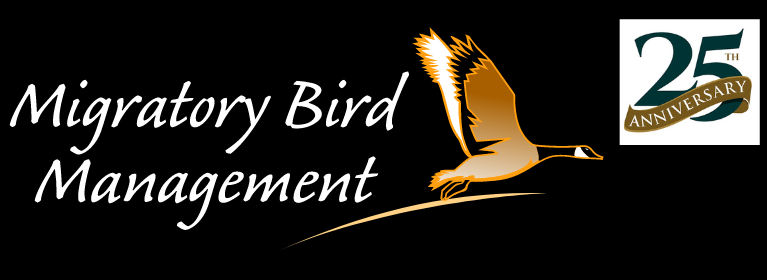Problems with Protected Birds: Managing Red-Winged Blackbird Conflicts
May 27, 2021
The red-winged blackbird is well known for both its characteristic song and its aggressive nature.
These little spitfires will attack anything that comes close to their nests, regardless of size or danger. The name says it all in identifying the males of this species: jet black with bright, almost fluorescent red and yellow wing patches. The females, often mistaken for sparrows, are a cryptically-colored brown for camouflage so they can safely nest.

Male

Female
Red-winged blackbirds are a tenacious species well-adapted to our urban areas. Retention ponds, cattails, and bird feeders have created a haven for these tough and vocal little birds and in spring you can hardly go anywhere without hearing their “conk-a-tree!” trilling. The males sing and display their bright wing patches almost continuously, defending their turf, attracting as many females as possible, and warning off potential rivals and threats. If the songs and displays don’t work, they are not shy about physically enforcing their dominance over a patch of land. It is that aggressive attitude that has earned them a frightful reputation. Parks close down pathways around nesting areas as people and pets become a target of their swooping dive bombs. The birds’ fearlessness even extends to larger birds that pose a potential threat to their young, including herons and bald eagles.


Sign at a local park warning of aggressive Red-winged Blackbirds
We Can Help with Your Red-Winged Blackbird Problems
Nesting red-winged blackbirds can create conflicts for property owners. As native migrants, these birds – and their nests – are protected by the Migratory Bird Treaty Act of 1918, and cannot be harmed in any way. Migratory Bird Management can help. We offer customized plans and biology-based strategies for managing nesting blackbirds legally and humanely.
To learn more about how our biologist-led team of bird conflict specialists can help you manage your red-winged blackbird conflicts, as well as any other bird issues, give us a call or click on the link below.




 0
0
